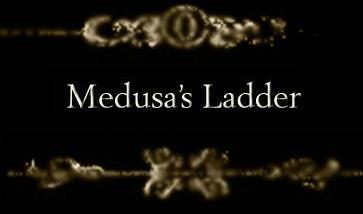|
|
|
|
|
|
|


A Room with a Most Remote View
If my scanner was not 2000 miles away in a box awaiting freedom, I would share some what-I-believe-to-be-on-the-verge-of-impressive scribblings. That is, if I wanted to spoil the experience for anyone that might be inclined to watch Ed Dames’ Operation Mindazzle: Military Remote Viewing Psychic Training Course.
If I wanted to spoil the experience, I would be more specific in this scribble description and say that, in accordance with Major Ed Dames and F.M. Bonsall’s instructions on said DVD, in a little box I drew, there are objects, almost exact representations of the target, and then a certain type of line, that is apparently a representation of a certain element present within the target.
Forgive my vagueness, but the point is—I believe I actually may have remote viewed. Not just with the first practicum, but the second also. Yes, the second scribbling was even more exact; I wish I could share. (I hate spoilers.) I was absolutely stunned.
I’ve always had a vague interest in remote viewing; I like things that make use of real, tangible techniques. I’ve read a bit about it, but always without a practical interest. It’s hard to ignore remote viewing’s provocative alarmist grandiosity and ultimatums; its penchant for the fantastical—apocalyptic visions, moon bases, aliens, angels, motherships.
One might expect New Ageyness; it’s there, inextricable, but it’s somehow nicely stripped of fluff. Maybe remote viewing is like this: it’s the whole love and light shebang mythos wanting to be witnessed objectively, meaning extracted.
|
Despite my success with the scribblings, I’m skeptical of remote viewing as it is commonly presented in its holistic form. In Operation Mindazzle, Dames asserts there are angels standing by our sides, preventing attacks, saving us from ourselves, so to speak. He explains that over the course of all the years of experience, remote viewers consistently ‘view’ an intelligent presence alongside us. The deduction is that this presence is an angelic one. An audience member questions the use of that particular terminology--that loaded assumption. From Dames’ quick, somewhat terse response, (‘…yes, yes, you could use another term, but if angel works, why not use it?’) I got the feeling it was a common question. It certainly was mine. |  |